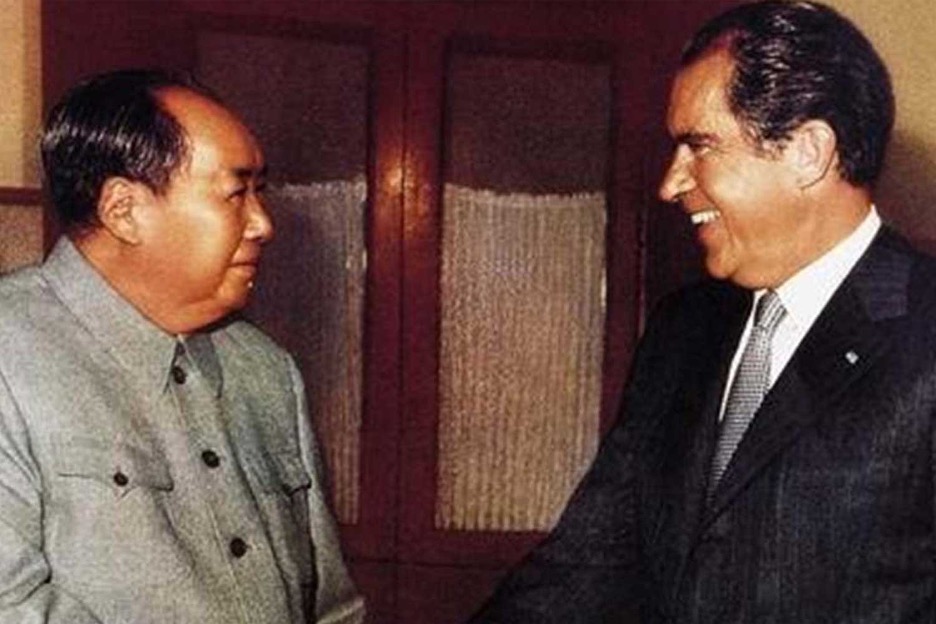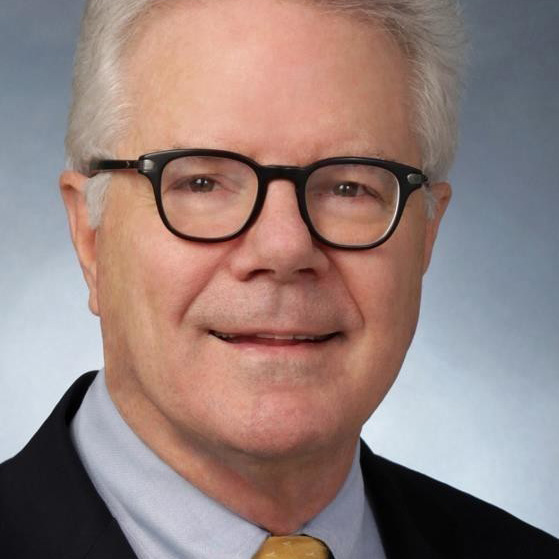The China Studies program at Johns Hopkins School of Advanced International Studies (SAIS) held a launch event for the SAIS China Global Research Center (SCGRC) on June 16, 2021. The SCGRC will provide a focal point for the deep and broad China expertise across the school’s campus locations in Bologna, Italy; Nanjing, China; and Washington, DC. It will also harness specialized China expertise and experience across Johns Hopkins University and seek productive cooperation channels.
The SCCRC’s launch event focused on the book, Engaging China: Fifty Years of Sino-American Relations, which provides an in-depth analysis of the period of engagement with China beginning in the 1970s. Throughout the launch event, contributors to the book presented their chapters, while faculty from Johns Hopkins SAIS and other schools and divisions at the university provided commentary. Anne Thurston, senior research professor at Johns Hopkins SAIS, edited the book, developed as a tribute to David M. Lampton, professor emeritus and former director of the China Studies program at SAIS. The book features a closing chapter written by Lampton on the future of U.S.-China relations, which has been referred to as an “instant classic.”
Andrew Mertha, vice dean and director of SAIS China Studies and the SCGRC, opened the event with brief remarks and joined Jill McGovern, member of the Johns Hopkins SAIS Board of Advisors and Hopkins-Nanjing Council, in discussing the university’s long and varied engagement with China. McGovern also reflected on the unique 35-year history of the Hopkins-Nanjing Center, created with strong support from her late husband and former Johns Hopkins University President Steven Muller. Sunil Kumar, provost of Johns Hopkins University, and Eliot A. Cohen, dean of Johns Hopkins SAIS, stressed the importance of the study of China in their remarks, emphasizing the significance of the school and the university’s deep relationship with the country and policy-relevant China scholarship to the university’s mission and the world.
In the event’s first panel, Barry Naughton, Sokwanlok Chair of Chinese International Affairs in the School of Global Policy and Strategy at the University of California, San Diego, discussed U.S.-China economic ties. He analyzed what American economists accurately anticipated — and failed to anticipate — about the unusually rapid development of the Chinese economy since the era of reform. Adam Webb, American co-director of the Hopkins-Nanjing Center, moderated the panel that also featured David Bulman, McGovern-Muller Assistant Professor of China Studies and International Affairs at Johns Hopkins SAIS; Michael G. Plummer, director of SAIS Europe; and Xian Sun, associate professor of practice at Johns Hopkins Carey School of Business.
Yanzhong Huang, senior fellow at the Council on Foreign Relations and director of Global Health Studies at Seton Hall University, explored U.S.-China public health relations during the event’s second panel. Huang traced the history of Sino-American public health work from the 1800s to the present day, describing its historical strengths and the increasingly intense competition and politicization of the public health relationship. Joining Huang for the panel were Laura Morlock, executive vice dean and professor and associate chair for Health Management Programs at Johns Hopkins Bloomberg School of Public Health; Chengda Zhang, director of Global Services at Johns Hopkins Medicine International; Nancy Reynolds, associate dean of Global Affairs at Johns Hopkins School of Nursing; and Xiaoqin Wang, director of the Tsinghua-Johns Hopkins Joint Center for Biomedical Research and professor of biomedical engineering at Johns Hopkins Whiting School of Engineering. The panel was moderated by Yascha Mounk, associate professor of the practice of international relations at Johns Hopkins SAIS and senior fellow at the Johns Hopkins Agora Institute. The panelists concluded the discussion by sharing thoughts on interacting with the Chinese health system to promote bilateral interests in medicine and global health.
During the event’s final panel, Lampton examined the future of U.S.-China relations, referring to it as “comprehensive competition.” He noted the diminishing support for engagement with China across sectors and political affiliations in the U. S. and stressed that both nations must find ways to continue to work together in critical areas. Christopher Morphew, dean of Johns Hopkins School of Education, moderated the panel, which also included John Lipsky, Peter G. Peterson Distinguished Scholar at the Henry A. Kissinger Center for Global Affairs and senior fellow at the Foreign Policy Institute Senior at Johns Hopkins SAIS; Emelia Probasco, chief communications officer at Johns Hopkins Applied Physics Laboratory; and John Yasuda, assistant professor of political science at Johns Hopkins Krieger School of Arts and Sciences. They expressed pessimism about short-term improvement in bilateral relations during the discussion but agreed that there are avenues for long-term improvement between the two nations.


